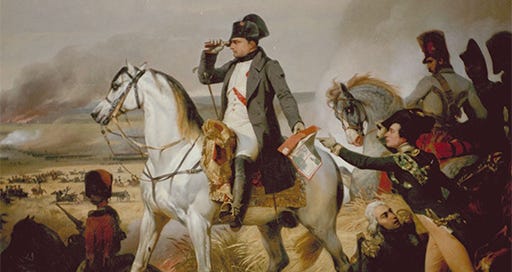1. Historical Perspective: Man’s Outlook on History (7)
The Swings of History’s Pendulum
But turn on a few years, and from the outlook of the ordinary man we are no longer at the end of a feeble and moribund Christendom, but at the start of a new and vigorous age, full of ideals, moral, cultural, philosophical, religious, and materialistic. As I said in an earlier page, it would take a whole book to discuss the question how far the Revival of Learning, the Reformation, the discovery of America and the Cape Route to the Indies, or scientific discovery which knocked the Geocentric Theory on the head, were each of them responsible for the new historical perspective of the civilized world. But the change was complete and astounding; and the foundations of the modern ways of thought had been laid, while the “Seven Ages” in their depressing series had dropped out of men’s conception of the Universe. A new visualization of the world had begun.
I have now arrived at the starting-point of modern thought. Every reader of history may fill in for himself the details of the later changes in historical perspective which have filled the four centuries that have elapsed since the Reformation and the Renaissance. I reckon myself that there are no more than three of all-pervading importance. First, the Liberal, Modernist, Scientific, Humanitarian outlook of the later XVIIIth century with “Back to Nature”, the “Rights of Man”, and “Liberty, Equality, and Fraternity” as its watchwords. That was destined to end in bitter disillusionment, the guillotine, endless wars of conquest, and a military despotism such as the world had not seen since Julius Caesar.
Secondly, cutting curiously across the last, and decrying its cosmopolitan enthusiasm, was the Nationalist movement of the XIXth century, with its appeal to half-forgotten race-feeling of which the XVIIIth-century movement had made such mockery. In this new historical perspective to be a “friend of humanity”, as the XVIIIth-century man called himself, was to be suspect. Ancient ties of blood and culture and historic glory were exhumed from oblivion—ancient grudges and neighbourly enmities resuscitated also. We have it with us in full force today, when the cry of “Self-determination” is raised, and has, alas! become the counter-cry to the Brotherhood of Man.
But deplorable as some of the developments both of XVIIIth-century Humanitarianism and XIXth-century Nationalism may have been, what are we to say of the last change of historical perspective of all which has lately influenced too many wild brains? The conception of “Class-consciousness” dominating all other ideas; the rejection of Liberty as inconsistent with inquisitorial state-control, and of Equality as inconsistent with the worship of “majoritarianism” (horrid word!), and of Fraternity because the alleged majority refuses to acknowledge certain sections of society as brothers at all, is certainly the most appalling of all moral phenomena. We who eye the working of the Bolshevist outlook as contemporary observers are sometimes tempted to relapse into the mental pose of the chronicler of 1493, who saw Antichrist and the Last Judgement looming close at hand. Many men of sane temperament, like Edmund Burke, felt the same in 1793 when they contemplated the bloodthirsty antics of the Jacobins. That madness ultimately made an end of itself by self-exposure of its odious hypocrisy and undisguised tyranny. I suppose that the madness of to-day will have a similar end: there appear already to be signs of that happy consummation—Bolshevism is too obviously the despotism of an armed minority which denies the Rights of Man.
Meanwhile its very existence and local triumph have altered the historical perspective of our own generation. We who have seen it will never have the same outlook on the future—or the past—as we had before the Great War. The sight of such anarchy has justified many old fears and disappointed some old hopes. Our estimate of political values and possibilities has had to be reconstructed. The Pessimist, incidentally, has enjoyed one of those periods in which he is able to snarl “I told you so” to a disconcerted world. But all down history the Pessimist has never had the last word. I prefer to range myself with the Optimists, and hope to survive long enough to see another vista of hope before my own generation has passed away.
I know not whether the change of perspective will come by means of the League of Nations, which has provoked so much enthusiasm in so many quarters, or whether it will be the result of a saner nationalism which can combine true patriotism with a proper regard for the rights of one’s neighbours. All I know is that the world-mind works by action and reaction, and that a swing of the pendulum in one direction will ultimately be followed by a swing in the other.
That to my mind is the teaching of history.
To obtain a deluxe leatherbound edition of STUDIES ON THE NAPOLEONIC WARS, subscribe to Castalia History.





